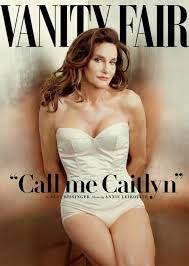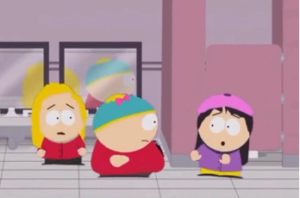Father’s Day, Mother’s Day: What Does It Mean Anymore?

This weekend was Father’s Day. The Ford-Fitzgerald clan has nine fathers – five in my generation and four in the following one, of which three, along with spouses and offspring, were together at the Swamp House on Sunday.
Father’s Day was never a big deal for us. Is it for anyone? Someone told me that they saw a list of American holidays ordered by some measure of importance and Father’s Day was number 40, behind Arbor Day. (What is Arbor Day?)
If it weren’t for my mother, Father’s Day would have gone unnoticed in my childhood home. The day before Father’s Day, she had us make cards for him. I was considered a good scribbler back then, and I took my reputation to heart. My cards were always little masterpieces – part surrealist and part COBRA. I’d present the card to him with great expectations. He’d pick his head up from the book he was reading, pat me on the head, and then return to his studies.
As for me, in my adulthood, I don’t have anything to report in terms of Father’s Day memories. Numbers One and Two Sons face-timed me from California. And Number Three Son was with us, along with his family, at a brunch on the Avenue.
When our boys were toddlers and young children, they got most of what they needed – love and constant correction – from their mother. I played the Ozzie Nelson role, going to work early and coming home just before dinner. During the week, I saw them briefly. Maybe twice a day. Time with father was reserved for weekends.
That ratio of maternal/paternal time and attention in those early years seemed to have worked well. But when the boys moved into their teenage years, my duties became more regular and more serious. I had to play, as well as I could, the initiating father in all things manly. Like not whining and being brave and treating smaller children gently.
When they got into their gangly, testosterone-fueled years, they began testing the authority of their mother. That’s when I felt the need to step in and give them the “do-that-again-and-you’ll-get-the-back-of-me-hand.” (I never had to give them the back of my hand. Notwithstanding their boyish instincts, they were basically good and loving kids. But they could never be sure if my threats were serious.)
I’m happy to report that all three of our boys grew up as well as we could have hoped. By that, I mean they have become financially and emotionally independent adults that speak courteously to strangers, are generous with their time and money, and show kindness when it is called for.
I don’t dispute that K earned and deserves 80% of the credit for their successful maturation. But I claim 20% for myself as a father that was there when he was really needed.
And fathers are needed. Countless studies show that children that grow up without fathers are severely disadvantaged in terms of how they perform in life. They end up quitting school earlier, having children of their own younger, earning less money, committing more crimes, having a higher incidence of suicide, and dying earlier.
But that may not be enough. Last Thursday, I woke up listening to a PBS radio special about Father’s Day. PBS, which, as you know, is supported by taxes and listener contributions, decided to add a fun twist to this special by making the segment an interview with a transgender father.
Kayden Coleman is the transgender father of two daughters. His PBS interview was about what it was like fathering two daughters as a transgendered man that grew up as a biological female. It turns out that it is great. As he explained to the host, transgender fathers are actually better at fathering than cis-gender fathers because they understand what it is like to menstruate.
Alas.
But I shouldn’t complain. Cis-gendered women have it much worse. They are rapidly being bettered by transgendered women in just about every form of human competition, including sports and martial arts and beauty pageants and chess.
It’s no wonder that in 2015 the undisputed Woman of the Year was Caitlyn Jenner, who was celebrated on at least a dozen magazine and newspaper front pages. Or that last October, President Biden invited Dylan Mulvaney to the White House to celebrate her as one of America’s most popular female social media stars.
Never mind.
Back to Delray Beach and the Ford-Fitzgerald homestead…
As long as I can remember, there’s been a family debate about a point of Mother’s Day and Father’s Day decorum. The issue: Who is supposed to plan the celebration and buy the gift? The spouses or the children? We decided it was the responsibility of the children.
In our early years of marriage, K and I didn’t celebrate our days of recognition because we agreed that it was each of our responsibilities on Father’s Day and Mother’s Day to celebrate our own parents’ days, not each other’s.
Now that our kids are grown, we feel it’s up to them to celebrate our days. We don’t expect much. But we expect at least a phone call. So, that’s family policy. We eschew responsibility for the celebration. It’s up to the kids. Although I’m pretty sure that K reminds them. And so do I.
I think that’s fair. But still, just to be safe, I get K flowers.
Speaking of Fathers Having Babies…

Check out these two short clips.
The first comes from Monty Python’s Life of Brian, which I saw again last week. It had me screaming. One of the best moments targeted this issue of gender roles for parents. I’m talking about the scene where Stan announces that he wants to have babies. (In 1979, of course, when Life of Brian came out, the idea that men could have babies was universally considered ridiculous.)
Click here.
And this, more or less, is the same skit. But this one was produced more recently. It’s a bit from South Park. Click here.
